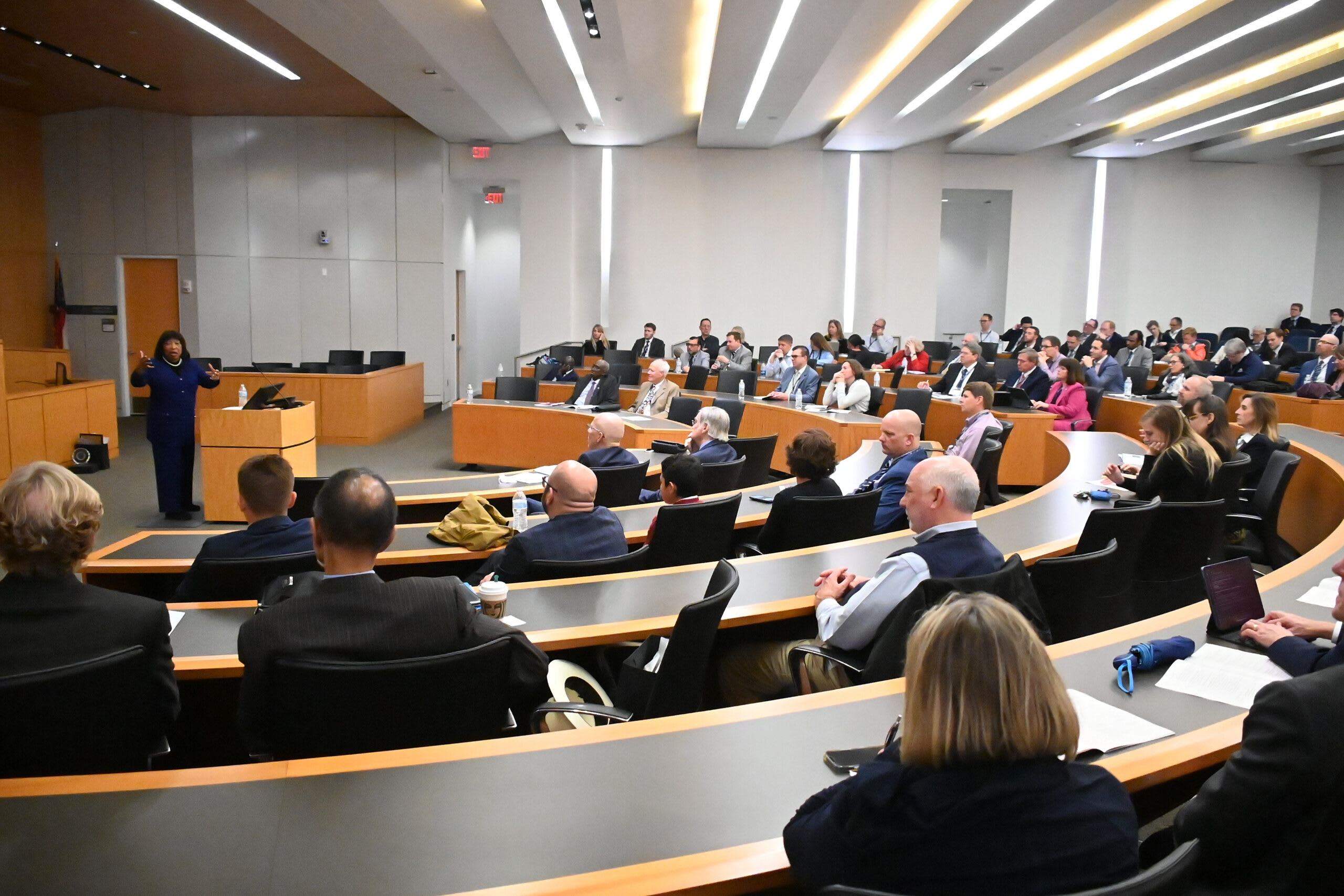By Nick Beatty
Mar 31, 2023 | 4:04 PM
“History is the wellspring from which we design our future.” At the 2023 Annual Conference of the J. Reuben Clark Law Society, held in Atlanta, Georgia, the Honorable Judge Bernice Donald of the Sixth Circuit Court of Appeals encouraged all of us to review our shared history to help influence our treatment of those in our community.
Judge Donald was the recipient of the J. Clifford Wallace Award honoring distinguished jurists who have contributed to the cause of justice beyond his or her office. Judge Donald – the first African American woman judge in Tennessee, and the first African American woman to serve on the Sixth Circuit Court of Appeals, was recognized for exemplifying the mission statement of the J. Reuben Clark Law society with her professional distinction and excellence, professional integrity, and service to the administration of justice beyond her ordinary responsibilities.
Before Judge Donald’s address, the J. Reuben Clark Law Society also recognized Susan Griffith for her work with the Timpanogos Legal Center offering pro bono legal service to those in need, by awarding her with the Rebecca van Uitert Women in Law Public Service Award. Susan Griffith discussed the importance of the work of the legal center in helping those affected by family and domestic abuse to move forward in their path to a better future.
Judge Donald began her address by reviewing the course of legal history in America. She explained that there are three ideas present in the declaration of independence: the idea that people have the inalienable right to life, liberty, and the pursuit of happiness; that all men are created equal; and that we have a duty to defend these rights for ourselves and for others.
However, she noted that in American history, the rule of law has been experienced by each individual through their own unique lens. At the time those rights were espoused in the founding of the country, they excluded many groups from experiencing them, such as women, indigenous people, African Americans, and non land-owning citizens. Thus, the seeds of difference were sown into the founding documents of the nation. Through time, the country grew into those rights by expanding them, often through decisions from the judicial system such as Brown v. Board of Education.
However, Judge Donald pointed out that laws, even great ones, are not self-executing. Without men and women to push and pull those laws, they can be of no value.
Judge Donald then shared her own experience from her childhood in Memphis, Tennessee of the effect of laws when they are not enforced by good men and women. She shared stories of being prohibited from attending the Memphis zoo on any days other than Thursday. She shared her education at a segregated elementary school, where drinking water had to be carried in jugs by children from the nearby middle school, while the newly built white school had indoor plumbing and other facilities.
She noted hearing from a prominent white citizen in those times that he hadn’t noticed the African American members of the community and their struggles for equality. Judge Donald stated, “We have to make sure that people aren’t invisible to us. We have to see their humanity.”
Judge Donald stated that in her travels around the world, she noted that all people want the same basic things – safety and security for their family, the ability to achieve their potential, and the ability to uphold their basic human dignity.
Judge Donald also shared lessons she learned from her family, stating that “Law school taught me to be a lawyer, but my mother taught me to be a judge. Because she taught me about fairness, decency, respect, and hard work.” She shared that her mother and father taught her the important lessons about faith in God, seeing the good in others, self-confidence, and confidence to stand even when alone.

“And when tomorrow comes, you should be able to say, Lord this is a new day. This day is a gift from you, filled with promise and opportunity. Today, I will do great things because I am great. I am great not because of who I am, but because of how I serve.”
Para ler em Português, clique aqui. Para leer en español, da click aquí.
